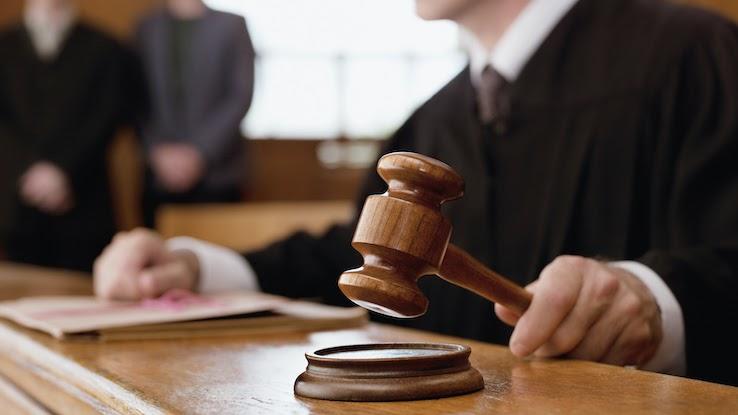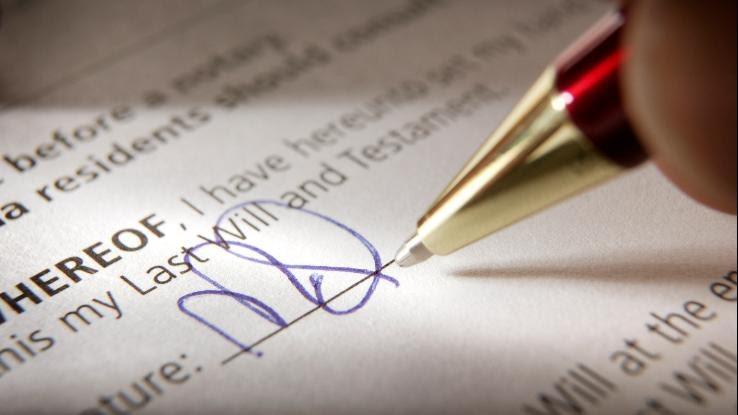According to the Book You Should Review Your Estate Plan Every

Estate planning is a sensitive subject that can be difficult to navigate. It involves topics people don't often like to think well-nigh and processes that are complex. Only engaging in manor planning is essential for protecting not just the things that yous care about merely also the loved ones who'll receive them upon your passing.
Writing a will is a critical element of estate planning, and the probate process is often a disquisitional follow-up element of proving your will's validity and settling your estate. Understanding more about what probate is, forth with some of the specifics involved in information technology, can help you better anticipate what your loved ones volition go through — or what you lot may need to handle if you're the executor of someone's will.
What Is Probate?
Probate is the legal procedure that takes place after someone dies to make up one's mind how the assets they owned at expiry volition get distributed to people. In understanding probate, looking at the definition the American Bar Association (ABA) uses is helpful because information technology breaks the process of probate into several steps, ultimately making the concept more digestible. According to the ABA, probate is the "formal legal process that gives recognition to a will and appoints the executor or personal representative who volition administrate the estate and distribute the assets in the manor to the intended beneficiaries."

Let'due south suspension this downwards a niggling bit more. Giving recognition to a will essentially means that, in the eyes of the law, the deceased person's will is determined to be valid — that they didn't sign it under duress, that they were of sound mind when they signed it or that something else that could invalidate the will didn't happen. Appointing an executor ways the volition names a person who volition acquit out the instructions in the will and distribute assets to the people to whom the deceased wants those assets to get to. Probate is the process of filing paperwork (and sometimes going to court) to ensure the deceased's will is legal and that it is followed legally. It's also the process of paying the deceased'south debts and distributing their avails.
Precisely how a will is probated will vary widely from situation to situation in at to the lowest degree five important means. First, probate laws are fix on a state-past-state footing, meaning that yous'll be required to complete different steps to meet varying legal requirements depending on your state. Second, unlike steps may be necessary depending on if the deceased had a will or died intestate, pregnant they passed without a volition. Third, unlike avails are handled differently. Fourth, executors are required to carry out the instructions that the deceased person outlined in their volition, and these can vary widely from situation to state of affairs. Finally, in many cases, probate may exist rendered unnecessary by planning that the deceased did ahead of time.
What Are the Steps to Probate a Will?
The formal probate procedure includes six full general steps. Recollect that the detail tasks to complete at each step can vary widely from situation to situation and state to state. This outline assumes that the deceased left behind a will that appointed an executor who was alive at the time the deceased died.

Step 1: Filing a Petition
The person named as executor in the will — that is, the person the deceased appointed to carry out their wishes afterwards their decease — must file a petition to a courtroom in the county where the deceased lived. The petition is paperwork that asks the court to officially recognize the petitioner equally the executor of the deceased's estate. Along with the petition, the executor needs to file a copy of the deceased'due south will and death certificate. If you lot're the executor, the rules in your state will specify whom you demand to tell that you lot're filing this petition. At a hearing, the court will listen to whatsoever objections to the request and decide whether or not to legally authorize the executor to move forward with probating the will.
Pace Two: Giving Notice
Assuming that the court granted your petition to human activity as executor, y'all'll be required to notify different entities that the deceased's estate is "being probated" or "in probate." Each state'south laws specify precisely who needs to receive detect and how. In most situations, however, you'll need to requite observe to any potential creditors (people the deceased may take owed money to at the time of expiry), any potential beneficiaries mentioned in the volition or any trusts created past the deceased. Y'all may besides need to notify whatever heirs — living relatives who may potentially be beneficiaries.
Footstep Three: Gathering the Estate's Assets
An executor is responsible for identifying, finding and gathering upward all the assets in the estate. This is annihilation the deceased owned at the time they died. Avails can include a wide variety of different things, such every bit balances in banking concern accounts; balances in retirement accounts; interests in pensions; investments such every bit stocks, bonds, certificates of deposit or precious metals; real estate (state and/or buildings); businesses; outstanding debts that other people owe the deceased; art and postage stamp collections; or personal furnishings and holding.
This "gathering" stage can — in complex cases when the deceased has myriad investments and business interests — go confusing quickly. In these complex situations, you should obtain legal, fiscal and tax advice from qualified lawyers equally soon equally possible. You may as well need to have sure assets inventoried and appraised before presenting these resource to the court.
Stride Four: Paying the Manor's Bills (and Taxes)
During the gathering procedure, you'll also identify debts owed by the deceased. Those debts may be as simple as an IOU or personal loan from a relative, but they may also be amounts owed on a financed vehicle or a property's mortgage. They may, in more than complex cases, include things like concern loans or payroll. Your job as an executor is to pay the deceased's valid debts — not personally, but from the assets of the estate.
This can become very circuitous, depending on the avails — once again justifying the recommendation that you seek professional person legal advice on behalf of the deceased and their estate. Don't forget during the payment of all of these bills that the deceased will demand a final tax return filed. You or your advisors will have to prepare that render and pay those taxes from the estate'southward avails.
Pace V: Distributing What Is Left According to the Deceased's Instructions
Once all of the assets take been gathered and all the debts (and taxes) of the estate have been paid, your next task equally an executor is to distribute the remainder of the avails to the beneficiaries nether any specifications of the will or trust, if one exists.
That might mean delivering up a particular concrete item (with paperwork to found and transfer ownership and admit receipt) or piece of existent estate, which can become tricky. Houses and existent estate are significant assets when information technology comes to probate. In many cases, real estate is owned by the deceased and someone else in what is called "articulation tenancy." This ways the deceased and the other person both own the belongings — and it automatically goes fully to the living owner upon the death of the other possessor without going through probate.
Distributing assets can also mean that the executor writes checks to the beneficiaries from the estate's banking company account for the amounts listed in the deceased'south will. In some cases, gifts won't be fabricated right away. They may be made subject area to sure restrictions. For instance, the deceased might give $50,000 to a grandchild on the condition that they don't receive the money until they turn 18 years erstwhile.
Step 6: Wrapping Information technology Up
At every stage of every 1 of these steps, you as the executor are required to keep detailed, precise and complete records of all your dealings with every asset and debt in the estate. These records are often called "accounts." At any fourth dimension, y'all may be required — by a court, casher, creditor or heir — to explain how you handled the manor and to show those accounts. In one case the first 5 steps are complete, you'll submit a detailed final study to the probate court that granted the petition at Footstep One and enquire for the manor to be closed. This report is an official discover to the court that "all property has been distributed and all other estate obligations take been taken care of," according to LegalZoom.
Is It Always Necessary to Become Through the Probate Process?
There are some situations in which information technology'south unnecessary to become through the probate procedure described above. Depending on the state you lot live in, probate may not be necessary depending on things like the size of the estate (in terms of the value of the avails), whether or non the deceased owned any real estate in their own proper noun without a joint tenant and whether the deceased left behind a volition. If yous're in a situation in which y'all have been named every bit an executor, your first call should be to get qualified legal advice about your obligations that are unique to your personal circumstances. One of the get-go things yous'll hash out with a lawyer is whether you demand to go through the probate process.

Being selected as an executor to oversee probate of a volition is a meaning honor and solemn responsibleness. It's a task that requires diligence, organizational skills, attention to detail and rigorous compliance with the law. Executors are entitled to reimbursement from the estate for the work they'll put into the task and are expected to obtain and rely on professional advice and advisors to ensure that the police and the wishes of the deceased are fulfilled to the highest extent possible.
robinsoncleferts2000.blogspot.com
Source: https://www.reference.com/business-finance/estate-planning-involved-probate?utm_content=params%3Ao%3D740005%26ad%3DdirN%26qo%3DserpIndex
0 Response to "According to the Book You Should Review Your Estate Plan Every"
Enregistrer un commentaire